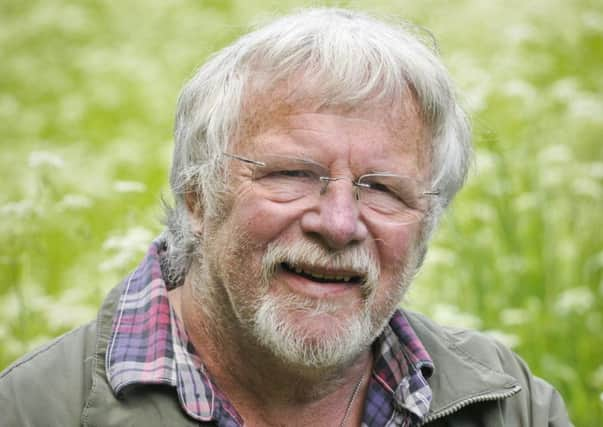Aye Write! review: Tales of Auschwitz and cuckoos


Yet the Worst Story in the World has its own twists. In the end, it was her father and brother who died at Auschwitz; her mother lived for another 57 years and married Anne Frank’s father, Otto.
Eva grew up jealous of her dead stepsister, because that was how the world now knew her. Yet even when perpetuating Anne Frank’s memory became Otto’s suffocating obsession, neither she nor her mother talked about their time in the camps, about the selections, the fear, the filth, the cold, the sadism of the women guards at Birkenau, and how they would have surely died – if not gassed, then barefoot and ragged and with infected wounds – had the Russians not arrived when they did.
Advertisement
Hide AdThe silence lasted decades. She perpetuated it herself, unwilling to explain what it was like to her three daughters. Even when Otto Frank talked her out of hating the world that had wrecked their happy, bourgeois life in Austria, she kept quiet about Auschwitz. They would be a happy family, she resolved: she would be the good mother. Now that she has written two books about living with the Holocaust, her eldest daughter still doesn’t want to talk about it, although her two younger ones do.
Superlatively chaired by Ruth Wishart, this talk with Eva Schloss was one of the most profound and moving events I’ve ever seen at Aye Write. In Schloss’s crisp, Viennese-accented English, she told her story without self-pity but captivatingly humane, engrossing and empathy-compelling wisdom.
Inevitably – and certainly unfairly – Jane Hawking’s talk seemed almost petty by comparison. Because what does it really matter that the film of The Theory of Everything – based on her memoir about her life with her first husband, Stephen Hawking – showed the front door not of the actual house they had lived in, but the one next door? That the film had wrongly implied she was a Cambridge graduate, that it hadn’t shown her parents, that it had claimed that the party where she met her future husband was at Cambridge, not St Albans and had shown them chatting on the stairs instead of in the corner of the sitting room?
At this point, half of her audience – the biggest of this week’s Aye Write! festival, every seat in the Mitchell Theatre sold – might have felt that they were slipping into a Glaswegian version of a black hole. The other half were hanging on in hope. Because this was a woman whose husband had both conquered motor neurone disease (well, living half a century longer than doctors told him he would) and had a brain big enough to work in 11 dimensions. What on earth must it have been like married to a man like that?
Sometimes she actually told us. Overhearing a couple of tea ladies at a 1970 Oxford conference laughingly pointing out her husband and saying “he looks as though he’s living on borrowed time” when he’d just outlined the first step towards unifying physics. Being ordered by a National Trust jobsworth to get off the property because it had no facilities for the disabled. At such moments, one glimpsed the steel and rage beneath this mild-mannered, polite woman.
Yet ultimately, none of those details about what the film about her marriage got wrong mattered half as much as what it got right. And seeing Felicity Jones play her on the big screen, and Eddie Redmayne giving his superlative, Oscar-winning performance as her husband, she did admit that it felt as though the present had dissolved and she was back in Cambridge in 1962 again and in love. What more can anyone possibly ask of a biopic than that?
Advertisement
Hide AdIf anyone ever makes a film of Bill Oddie’s life, they’ll have to go even further back for the key scene. It’s 1945 and a four-year-old boy growing up in a terraced house in Sparth Bottoms Road, Rochdale, retrieves a ball from a privet hedge, and shoos a bird away from a nest he finds there. He reaches in, and finds one egg that’s bigger and rounder than the four others. He then smashes it. “And I never have”, he lamented, “come across a cuckoo’s egg in the wild ever since”.
Cuckoos are back in Scotland right now – they only stay for four or five weeks – and it’s only recently that we’ve found where they fly back to (the Congo). They’re not, however, Oddie’s favourite species, no matter how much he fulminates against their slaughter by Mediterranean shooters on their migration north.
No, the bird that most gladdens his heart is the swallow – and he saw his first ones of the year skimming low over the Clyde on Wednesday morning.
Aye Write! ends today